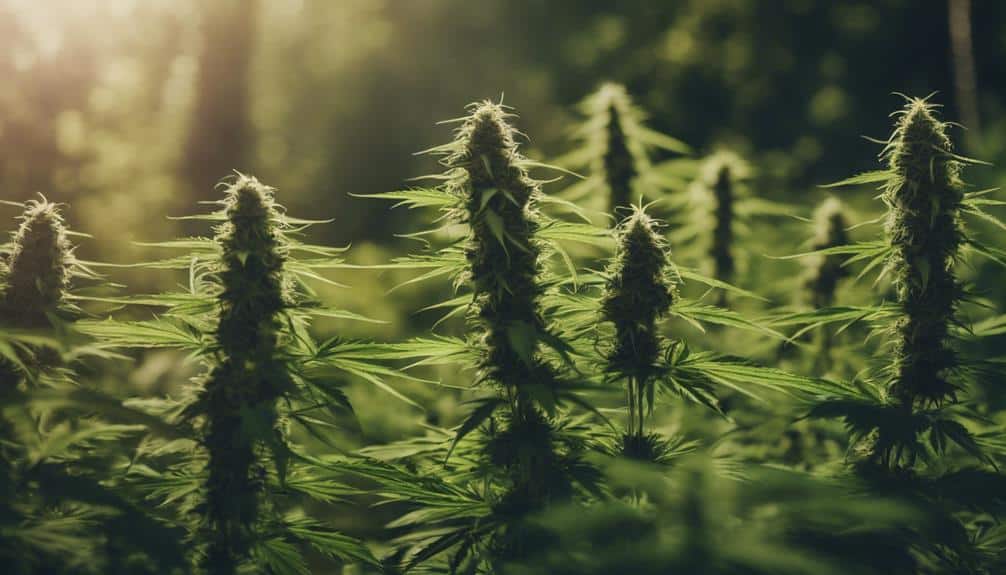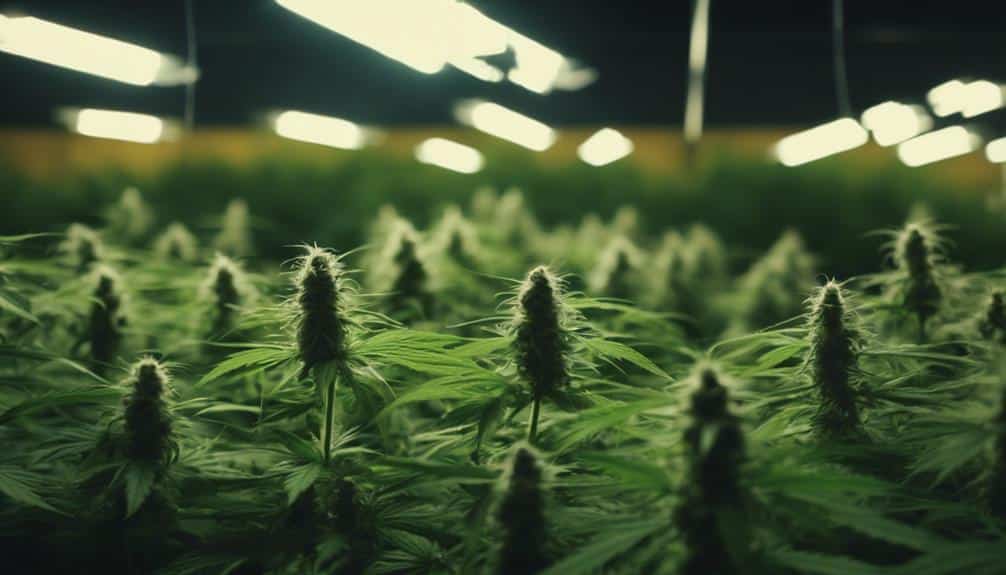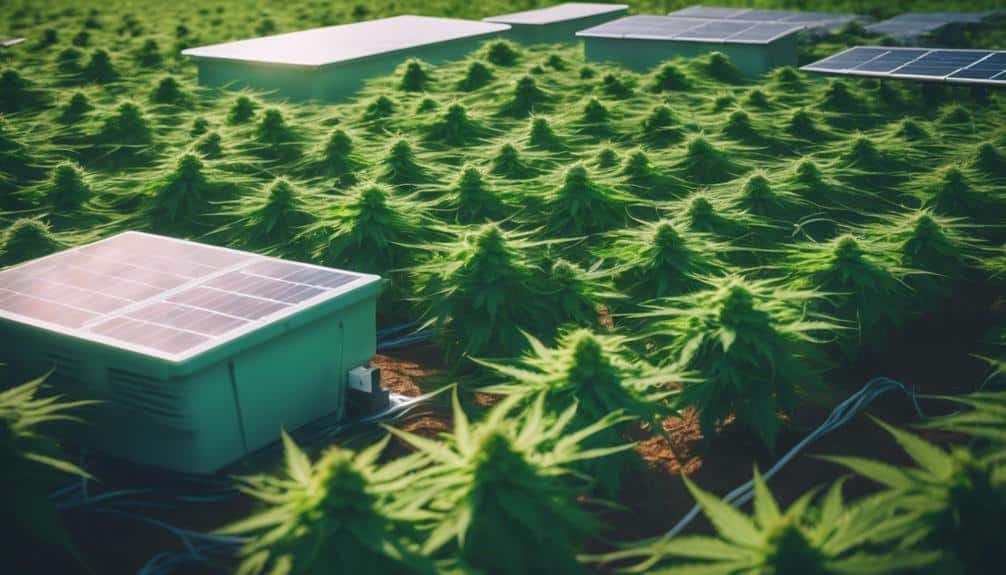While you may enjoy the euphoria induced by your favorite strain of cannabis, you might not be aware of the environmental costs associated with its cultivation. Cannabis production is infamous for its heavy water and energy consumption, contributing significantly to an alarming carbon footprint.
Table of Contents
Additionally, the rampant use of harmful pesticides that seep into our ecosystems is a concern. You’re probably wondering what can be done to make this process more sustainable? Fortunately, there are solutions on the horizon that promise to merge the lucrative world of cannabis with responsible environmental stewardship.
Stay tuned as we explore these possibilities together.
The Environmental Impact of Cannabis Cultivation

To fully understand the environmental impact of cannabis cultivation, it’s essential to delve into specifics such as water use, energy consumption, and potential pollution. First off, let’s consider land degradation issues. The intensive nature of cannabis farming often involves heavy use of fertilizers and pesticides. These chemicals can leach into the soil causing serious degradation and potentially lasting harm to the land.
Cannabis cultivation can also lead to deforestation when growers clear land for their crops without proper regulation or oversight. This contributes to biodiversity impacts as natural habitats’ destruction can lead to a decline in species diversity.
Moreover, if not properly managed, waste products from cannabis cultivation can contribute to air and water pollution. Cannabis farming produces substantial amounts of organic waste which if not disposed correctly can decompose and release harmful greenhouse gases into the atmosphere.
Water and Energy Consumption in Cannabis Farming
Building on the discussion of land degradation, it’s important to be aware of the significant water and energy demands that come with cannabis farming. This cultivation process, especially when performed on a large scale, often requires substantial amounts of water leading to heightened consumption that can strain local resources.
Research suggests that due to their fast growth rate and high metabolic activity, cannabis plants can consume up to 22 liters of water per day depending on the cultivation method. Therefore, using efficient irrigation techniques isn’t just a farming best practice but a necessity for water conservation.
Similarly, the energy needs of cannabis cultivation are substantial especially in indoor operations. The energy-intensive nature of indoor cannabis farming which relies heavily on artificial lighting, temperature control, and ventilation systems contributes significantly to its carbon footprint. In fact, carbon emissions associated with indoor cannabis cultivation can be quite high rivaling those of certain heavy industries.
The Role of Chemicals in Cannabis Production

Diving deeper into the environmental impact of cannabis cultivation reveals the significant role chemicals play in production. Understanding these chemicals’ dynamics including pesticide usage and their contribution to soil degradation is crucial for those passionate about serving others and preserving our environment.
The impact from various chemicals used in cannabis cultivation is immense:
- Pesticides combat plant pests but excessive usage not only harms the environment but also poses health risks to consumers.
- Fertilizers boost plant growth but excessive use can lead to soil degradation affecting soil biodiversity and productivity.
- Herbicides control unwanted plants but can harm non-target organisms and lead to soil contamination.
- Growth regulators manipulate the plant growth cycle but their residues can have detrimental effects on the environment and human health.
While these chemicals may be beneficial in the short term, they can cause significant environmental harm if not managed properly. It’s essential to understand their role and impact, and seek out alternatives that maintain productivity while protecting the environment.
Sustainable Practices in Cannabis Cultivation
Given the harmful effects of chemicals in cannabis farming, it’s clear we need sustainable practices to reduce environmental impact while maintaining crop productivity. Organic farming is a viable solution as its practices nurture the soil enhancing its fertility and promoting a healthy ecosystem.
Adopting organic farming methods can significantly lessen cannabis cultivation’s carbon footprint. By foregoing synthetic pesticides and fertilizers, we can help reduce harmful greenhouse gas emissions. Moreover, organically grown cannabis isn’t only environmentally friendly but also safer for consumption being free from residual toxins that could harm consumers’ health.
Water conservation is another critical aspect of sustainable cannabis farming. Efficient irrigation systems can drastically reduce water waste while rainwater harvesting provides a renewable water source. Also using cover crops and mulch prevents water evaporation preserving soil moisture.
Incorporating renewable energy sources like solar or wind power further diminishes the carbon footprint. These energy sources can power indoor cultivation facilities making them more sustainable.
The transition to these sustainable practices in cannabis cultivation may be challenging but the long-term benefits to both environment and public health are undeniable affirming this shift’s necessity.
Policy Recommendations for Ethical Cannabis Growth

To ensure ethical cannabis growth, it’s essential to establish comprehensive policies that prioritize sustainable cultivation practices, fair labor standards, and community engagement.
Firstly, ‘Land Use Policies’ need consideration. Stricter regulations should be implemented to prevent deforestation and land degradation preserving biodiversity and sustaining ecosystem health.
Secondly, promoting ‘Organic Certification’ acknowledges environmentally considerate growth methods free from harmful pesticides and synthetic fertilizers.
In creating these policies consider the following points:
- Implement stricter land use policies including zoning regulations to prevent agricultural encroachment into protected areas.
- Advocate for organic certification providing incentives for cannabis growers to adopt sustainable methods.
- Promote fair labor standards ensuring workers’ rights are respected including fair wages and safe working conditions.
- Encourage community engagement enabling locals to have a say in cultivation policies affecting their area.
Your role in promoting these policies is crucial. By advocating for ethical growth you’re not only serving the cannabis industry but also the environment and wider community. Make a difference by taking action today.
Conclusion
In essence, growing weed isn’t always green. It consumes large amounts of water and energy while chemicals can taint our planet. Yet by embracing sustainable practices you can cultivate cannabis conscientiously. It’s high time policy makers weed out unethical practices and sow seeds for responsible growth. After all, the environmental cost of cannabis cultivation shouldn’t overshadow its potential benefits. Remember, the grass can be greener on both sides if we just cultivate with care.
If you’re passionate about both the environment and the potential benefits of cannabis, I invite you to visit Cannabis Docs of Delaware to learn more. We’re here to provide all the information you need to make informed decisions and cultivate cannabis in a way that’s kind to our planet. Give us a call and let’s explore together how we can make the world greener one cannabis plant at a time. We look forward to hearing from you.

